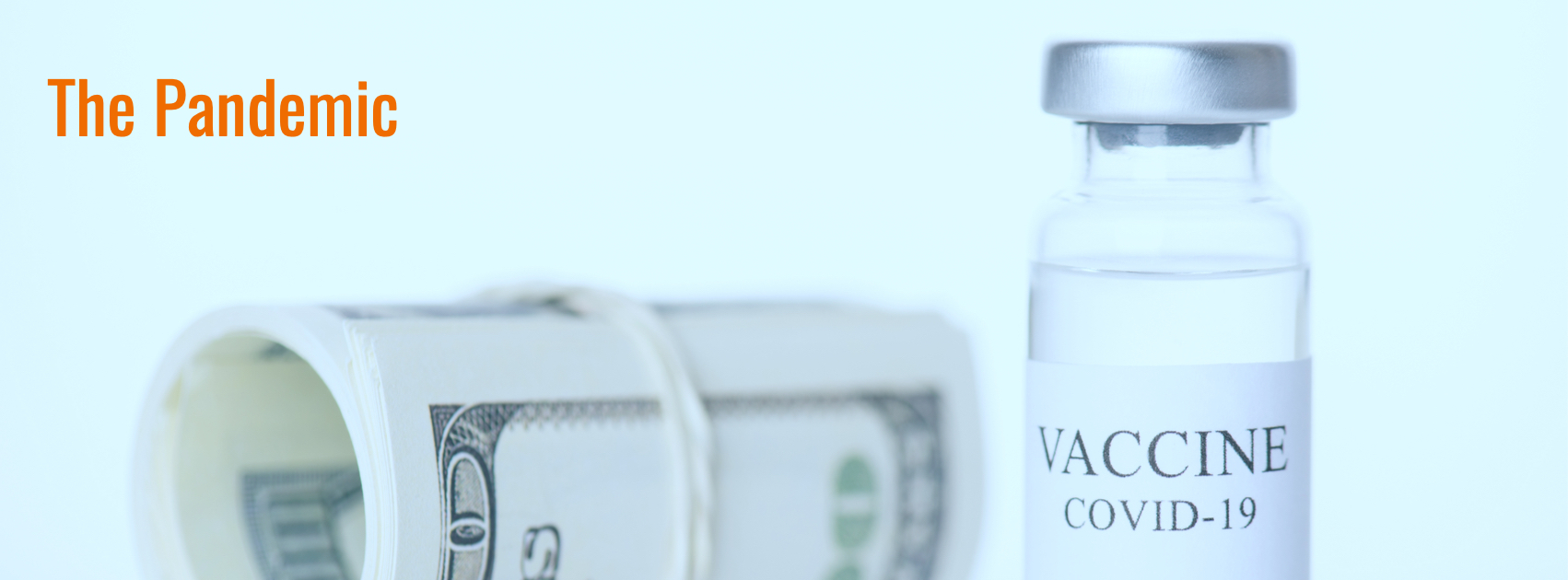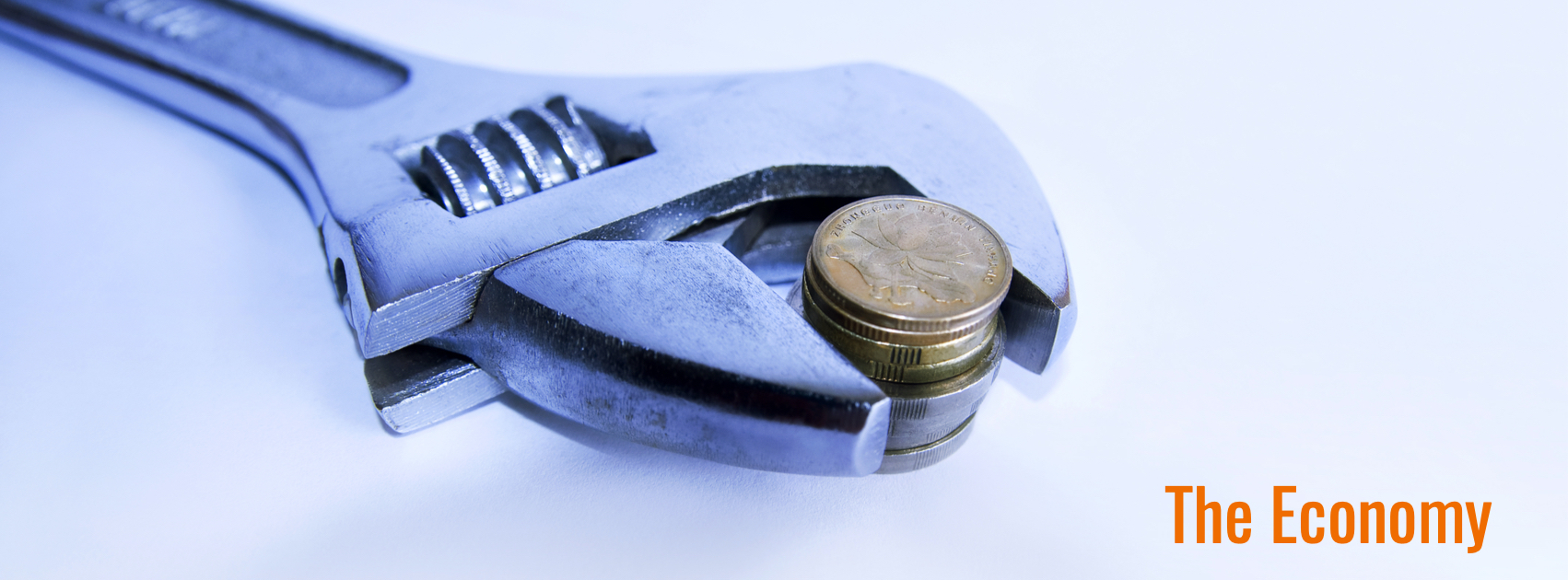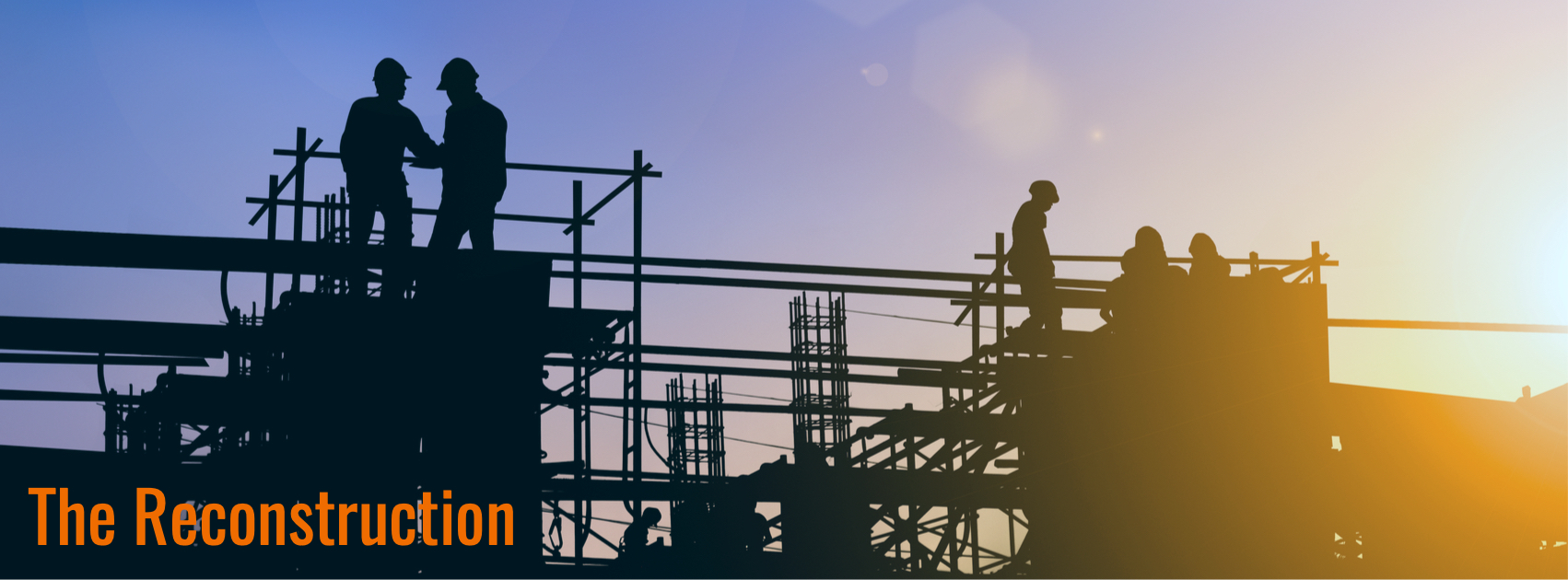
Published on December 10, 2020 / Leer en español
Dear Readers:
As we approach the end of this difficult and complicated year, we begin to look forward to 2021. The new year brings many challenges, but also some reasons to believe maybe it will be better than the last. The world will still be dealing with the health consequences and economic fallout of the COVID-19 pandemic in 2021. And while the availability of vaccines holds the promise of a return to something approaching “normal” life, manufacturing and distributing the vaccines will present some knotty logistical puzzles, not to mention the gargantuan task of vaccinating billions of people. If everything goes well, though, by late summer or early fall we should be seeing signs of normality in our lives.
On the economic front, the damage has been extensive. However, it is too early to figure out how different economic sectors will settle. Some of the economic harm will prove to be temporary but other sectors may be permanently scarred, especially those that depend on close person-to-person contact, such as retail trade, tourism, entertainment, hospitality, and education, to mention a few. In the immediate term, the top priority should be to provide assistance to the still unemployed, to struggling small and medium businesses, and to state and local governments, which have seen their tax revenues decline and their expenses increase due to the pandemic. Over the next two to three years, the focus will be on managing the transition to what many economists believe will be a smaller, more digital, less globalized, and increasingly unequal world economy.
Here in Puerto Rico, in addition to dealing with all of the above, we also have a crowded agenda full of other pending issues. The island will be entering the fourth year of a complicated bankruptcy process, under the aegis of a federal judge and a Fiscal Oversight Board. Successfully restructuring Puerto Rico’s debts in a fair and equitable manner will be a complex balancing act, as difficult and controversial tradeoffs are made among and between creditors, pensioners, and the needs of the general public.
At the same time, we will try to jumpstart a sluggish reconstruction process to repair the damage done by the 2017 hurricanes and this year’s earthquakes; a process that brings its own set of complications and tradeoffs as we will need to make tough decisions about what to rebuild, how, and where, especially in the areas of housing, energy, and public infrastructure.
So, the agenda is full, the task ahead awe-inspiring. But we don’t have to put our nose to the grindstone just right now and the Weekly Review will be on pause until January 2021. Until then, have a happy holiday season with your family and loved ones, take some time to reflect and talk about the year, and remember on the 31st to “take a cup of kindness yet, for auld lang syne”.
—Sergio M. Marxuach, Editor-in-Chief
On CNE’s Radar for 2021
The CNE Team has put together a summary of some of the issues we think will be relevant during 2021. Given everything that is going on, we decided it would be easier for analytical purposes to breakdown the issues into four categories: the pandemic; the economy; the reconstruction; and international trends. We hope you find this summary useful as you plan the year ahead.

![]() Help is on the Way – The FDA is expected to approve at least two COVID-19 vaccines for emergency use before the end of the month. The development of these vaccines in record time is a breathtaking scientific achievement and testimony of what can be done when government and the private sector work together.
Help is on the Way – The FDA is expected to approve at least two COVID-19 vaccines for emergency use before the end of the month. The development of these vaccines in record time is a breathtaking scientific achievement and testimony of what can be done when government and the private sector work together.
![]() But the Next Few Months Will be Difficult – However, expect difficulties during the next several months, as vaccine production ramps up while the virus is out of control in many countries, including the United States. In addition, the logistical challenges are enormous: the first vaccines to be available need to be stored at very low temperatures; two-doses are required to acquire immunity; and the distribution to vaccination centers is quite complicated. Thus, it should not be surprising if we experience some glitches along the way.
But the Next Few Months Will be Difficult – However, expect difficulties during the next several months, as vaccine production ramps up while the virus is out of control in many countries, including the United States. In addition, the logistical challenges are enormous: the first vaccines to be available need to be stored at very low temperatures; two-doses are required to acquire immunity; and the distribution to vaccination centers is quite complicated. Thus, it should not be surprising if we experience some glitches along the way.
![]() Is Puerto Rico Ready? – The COVID-19 pandemic has only magnified the importance of having governments that are well-equipped to handle unforeseen challenges. In Puerto Rico, however, the dismantling of the professional civil service; the outsourcing and privatization of key capabilities; and years of diminished financial resources due to austerity policies have diminished its capacity to respond effectively. Which leads us to raise the question: is the Puerto Rico government ready to roll out and execute this massive effort to vaccinate at least 70% of the population?
Is Puerto Rico Ready? – The COVID-19 pandemic has only magnified the importance of having governments that are well-equipped to handle unforeseen challenges. In Puerto Rico, however, the dismantling of the professional civil service; the outsourcing and privatization of key capabilities; and years of diminished financial resources due to austerity policies have diminished its capacity to respond effectively. Which leads us to raise the question: is the Puerto Rico government ready to roll out and execute this massive effort to vaccinate at least 70% of the population?
![]() Can We Avoid the “Eviction Apocalypse”? – The ongoing pandemic has also had deep lasting economic effects that have rendered many families vulnerable to losing their homes. The “eviction apocalypse”, however, has been seemingly contained in Puerto Rico thanks to federally mandated foreclosure moratoria, as well as a very limited eviction moratoria mandated by the Centers for Disease Control (CDC) and the postponement of foreclosure and eviction cases by the local courts. Nevertheless, these measures are set to expire soon, which raises the question of what will be done to avoid an avalanche of evictions and mortgage foreclosures. CNE has advocated for providing rental assistance, as well as extending foreclosure moratoria until households can get back up on their own.
Can We Avoid the “Eviction Apocalypse”? – The ongoing pandemic has also had deep lasting economic effects that have rendered many families vulnerable to losing their homes. The “eviction apocalypse”, however, has been seemingly contained in Puerto Rico thanks to federally mandated foreclosure moratoria, as well as a very limited eviction moratoria mandated by the Centers for Disease Control (CDC) and the postponement of foreclosure and eviction cases by the local courts. Nevertheless, these measures are set to expire soon, which raises the question of what will be done to avoid an avalanche of evictions and mortgage foreclosures. CNE has advocated for providing rental assistance, as well as extending foreclosure moratoria until households can get back up on their own.

![]() The U.S. Recovery is Slowing Down – Recent jobs data indicate the economic recovery in the U.S. is slowing down. Monthly job creation is increasing but at a slower pace and the total amount of people employed is still 9.8 million below the level reported in February. Furthermore, the Wall Street Journal reports that the U.S. labor force was 2.5% smaller in November than in February, a loss of 4 million workers. While it is too early to conclude that the reduction in the labor force will be permanent, there are reasons to believe the effect could be long-lasting: (1) many baby boomers have decided to retire earlier than expected; (2) many working women have been forced to stay home to take care of children; and (3) low-skilled workers have been particularly hard hit. That is why short-term COVID relief legislation is so important, to provide families, businesses, and state and local government the support they need until the vaccines are fully available in the spring.
The U.S. Recovery is Slowing Down – Recent jobs data indicate the economic recovery in the U.S. is slowing down. Monthly job creation is increasing but at a slower pace and the total amount of people employed is still 9.8 million below the level reported in February. Furthermore, the Wall Street Journal reports that the U.S. labor force was 2.5% smaller in November than in February, a loss of 4 million workers. While it is too early to conclude that the reduction in the labor force will be permanent, there are reasons to believe the effect could be long-lasting: (1) many baby boomers have decided to retire earlier than expected; (2) many working women have been forced to stay home to take care of children; and (3) low-skilled workers have been particularly hard hit. That is why short-term COVID relief legislation is so important, to provide families, businesses, and state and local government the support they need until the vaccines are fully available in the spring.
![]() Building Back Better – The economic effects of the pandemic also provide an opportunity to build back a better economy, as Jason Furman explains in this piece for Foreign Affairs. In addition to stimulating the economy in the short-term, the incoming Biden administration is well-positioned to make structural changes in the way unemployment insurance and other social safety programs work; to streamline worker retraining programs; and to rollout long-delayed federal investment in public infrastructure.
Building Back Better – The economic effects of the pandemic also provide an opportunity to build back a better economy, as Jason Furman explains in this piece for Foreign Affairs. In addition to stimulating the economy in the short-term, the incoming Biden administration is well-positioned to make structural changes in the way unemployment insurance and other social safety programs work; to streamline worker retraining programs; and to rollout long-delayed federal investment in public infrastructure.
![]() All That Would Help, But… – We also face many other economic challenges — for instance, a prolonged contraction, and high unemployment, poverty rates, and income inequality — that long predate the hurricanes and pandemic. This means the Pierluisi administration must craft a sensible, integrated, and well-articulated economic plan to promote economic growth. In addition, Puerto Rico’s high levels of poverty and inequality require that the federal government extend to the island programs that foster economic growth in Puerto Rico, such as the Earned Income Tax Credit, and which have been successful in tackling poverty among the neediest, such as the Supplemental Security Income.
All That Would Help, But… – We also face many other economic challenges — for instance, a prolonged contraction, and high unemployment, poverty rates, and income inequality — that long predate the hurricanes and pandemic. This means the Pierluisi administration must craft a sensible, integrated, and well-articulated economic plan to promote economic growth. In addition, Puerto Rico’s high levels of poverty and inequality require that the federal government extend to the island programs that foster economic growth in Puerto Rico, such as the Earned Income Tax Credit, and which have been successful in tackling poverty among the neediest, such as the Supplemental Security Income.
![]() In Addition, Housing has Been a Perennial Problem – Puerto Rico’s housing crisis predates its economic crisis. According to the Puerto Rico Planning Board, in 2019 housing and housing-related expenditures took the largest share (almost 30%) of total personal spending. Figures from the 2019 Puerto Rico Community Survey show that more than half of renters spend more than a third of their income on rent, while housing-related costs take up over a third of total income for more than 40% of mortgage holders. These households are, therefore, highly vulnerable to losing their homes in the event of a major shock, including another tropical cyclone or the ongoing pandemic, and it shows that there is an affordable housing crisis that very little has been done to mend it. Addressing this affordability crisis is a key component of any economic development strategy, as housing is an essential factor in determining social mobility. Even as the pandemic starts reaching its end, no economic recovery can be achieved until we can ensure housing stability for vulnerable households.
In Addition, Housing has Been a Perennial Problem – Puerto Rico’s housing crisis predates its economic crisis. According to the Puerto Rico Planning Board, in 2019 housing and housing-related expenditures took the largest share (almost 30%) of total personal spending. Figures from the 2019 Puerto Rico Community Survey show that more than half of renters spend more than a third of their income on rent, while housing-related costs take up over a third of total income for more than 40% of mortgage holders. These households are, therefore, highly vulnerable to losing their homes in the event of a major shock, including another tropical cyclone or the ongoing pandemic, and it shows that there is an affordable housing crisis that very little has been done to mend it. Addressing this affordability crisis is a key component of any economic development strategy, as housing is an essential factor in determining social mobility. Even as the pandemic starts reaching its end, no economic recovery can be achieved until we can ensure housing stability for vulnerable households.
![]() And Don’t Forget the Debt – During 2021, the Financial Oversight and Management Board for Puerto Rico and the government of Puerto Rico will be negotiating the restructuring of the central government debt (approximately $35 billion) as well as debt owed by the Puerto Rico Electric Power Authority. The key for both restructurings is to reach agreements that are fair, equitable, and sustainable. This last requirement is particularly important, as not much will be achieved if either entity is bankrupt again five years from now. One of the risks we face is pressure to get a deal done quickly, for the sake of doing a deal. But hurrying up the process now may cost us dearly in the future. Let’s take our time and get it right.
And Don’t Forget the Debt – During 2021, the Financial Oversight and Management Board for Puerto Rico and the government of Puerto Rico will be negotiating the restructuring of the central government debt (approximately $35 billion) as well as debt owed by the Puerto Rico Electric Power Authority. The key for both restructurings is to reach agreements that are fair, equitable, and sustainable. This last requirement is particularly important, as not much will be achieved if either entity is bankrupt again five years from now. One of the risks we face is pressure to get a deal done quickly, for the sake of doing a deal. But hurrying up the process now may cost us dearly in the future. Let’s take our time and get it right.

![]() Time Goes By – More than three years have passed since Hurricanes Irma and María struck us mercilessly, and post-disaster reconstruction still seems like a distant and unfulfilled promise. To be fair, this is a complex and highly bureaucratic process, involving numerous government entities and actors, and there are plenty of regulations and guidelines that must be followed.
Time Goes By – More than three years have passed since Hurricanes Irma and María struck us mercilessly, and post-disaster reconstruction still seems like a distant and unfulfilled promise. To be fair, this is a complex and highly bureaucratic process, involving numerous government entities and actors, and there are plenty of regulations and guidelines that must be followed.
![]() And We Need to Carry On – The reality is that there has been much more paper-pushing than hammering, since not a quarter of FEMA funds have been disbursed, and only $473 million has gone towards permanent works. In the case of the Housing Department, the outlook is even more worrying, because there are still thousands of homes with blue roofs and, as of October 2020, only 146 homes had been either repaired or rebuilt under the Home Repair, Reconstruction and Relocation Program (R3).
And We Need to Carry On – The reality is that there has been much more paper-pushing than hammering, since not a quarter of FEMA funds have been disbursed, and only $473 million has gone towards permanent works. In the case of the Housing Department, the outlook is even more worrying, because there are still thousands of homes with blue roofs and, as of October 2020, only 146 homes had been either repaired or rebuilt under the Home Repair, Reconstruction and Relocation Program (R3).
![]() But Many Issues Remain Unaddressed – Among the many issues that affect the reconstruction process, we would like to highlight the following:
But Many Issues Remain Unaddressed – Among the many issues that affect the reconstruction process, we would like to highlight the following:
- First, we need to improve coordination. Although there are two local entities designing programs and directing the use and management of the majority of local and federal funds for reconstruction, it is not clear to us whether their efforts and programs are harmonized.
- Second, local hiring. There is talk of billions of dollars available to “lift Puerto Rico,” but we are concerned that the largest contracts, to date, have been awarded to large U.S. corporations rather than local contractors.
- Third, supervision. Although the federal government has imposed countless rules and requirements for the use of funds, we need an effective local oversight mechanism that facilitates better transparency practices, a new governance structure, greater citizen participation, and centralized information and communication mechanisms.
- And finally, planning. Millions of dollars have been budgeted for the elaboration of numerous plans for reconstruction, but very few have even begun to be prepared. Isn’t planning supposed to be the roadmap for project execution?

![]() Geopolitical Shifts Are Taking Place – The decade of 2020 starts as one of global tectonic shifts that will affect Puerto Rico’s ability to turn-around the past years of fiscal crisis, economic deterioration, and institutional breakdown. Throughout the world, the COVID-19 pandemic has accelerated the digitalization of economic and social life, widening global and national disparities in education, labor opportunities, and access to wealth. Governments have been stretched to capacity in their efforts to cope with the pandemic, underscoring the crucial importance of national public health systems and social safety nets in future planning agendas. At the same time, current global geo-economics are shifting the international center of gravity towards the Pacific rim, challenging the Atlantic-centric and US-centered economic system under which Puerto Rico thrived during the second half of the XX century.
Geopolitical Shifts Are Taking Place – The decade of 2020 starts as one of global tectonic shifts that will affect Puerto Rico’s ability to turn-around the past years of fiscal crisis, economic deterioration, and institutional breakdown. Throughout the world, the COVID-19 pandemic has accelerated the digitalization of economic and social life, widening global and national disparities in education, labor opportunities, and access to wealth. Governments have been stretched to capacity in their efforts to cope with the pandemic, underscoring the crucial importance of national public health systems and social safety nets in future planning agendas. At the same time, current global geo-economics are shifting the international center of gravity towards the Pacific rim, challenging the Atlantic-centric and US-centered economic system under which Puerto Rico thrived during the second half of the XX century.
![]() And Will Affect U.S. Responses to Puerto Rico’s Challenges – These profound transformations will frame and serve as context to the responses that the U.S. will be able and willing to provide to the challenges faced by the island. And with an outdated economic model and a shrinking labor force, an estimated 30% of school children in the island having no access to a computer or an internet connection, a strained health system, and a government apparatus under fiscal receivership, these global trends highlight the importance of urgently framing a future reconstruction roadmap for Puerto Rico that factors in the rapidly changing world beyond the island’s shores.
And Will Affect U.S. Responses to Puerto Rico’s Challenges – These profound transformations will frame and serve as context to the responses that the U.S. will be able and willing to provide to the challenges faced by the island. And with an outdated economic model and a shrinking labor force, an estimated 30% of school children in the island having no access to a computer or an internet connection, a strained health system, and a government apparatus under fiscal receivership, these global trends highlight the importance of urgently framing a future reconstruction roadmap for Puerto Rico that factors in the rapidly changing world beyond the island’s shores.
